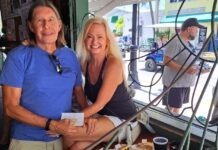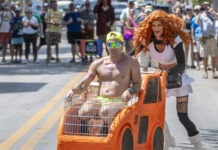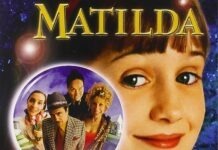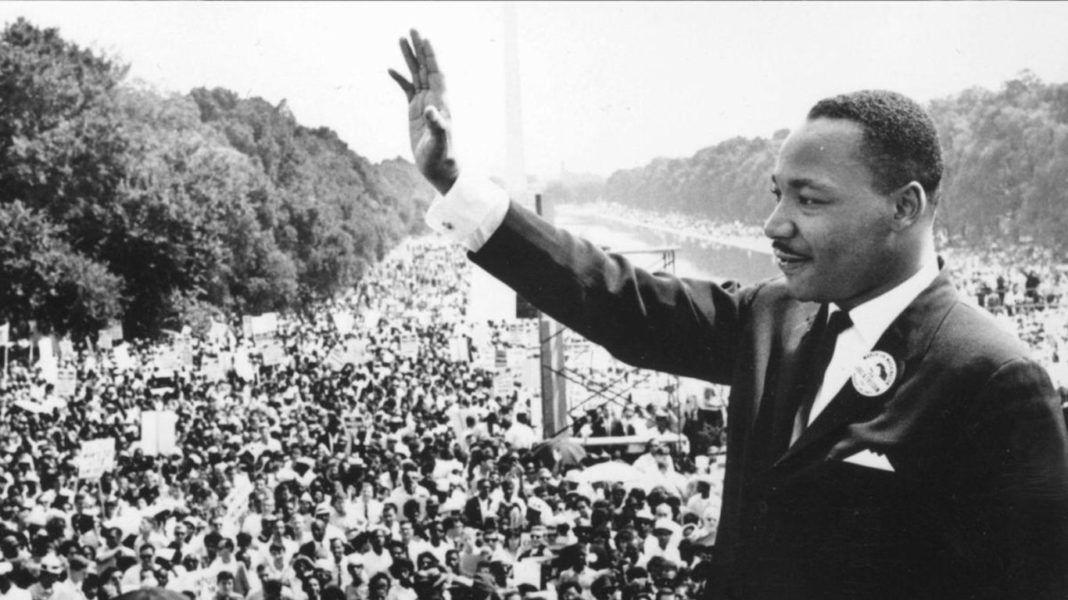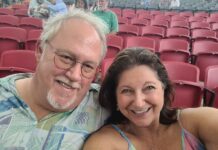This past Monday, we remembered the contributions of Dr. Martin Luther King Jr. on our National Day of Service. More than just a holiday, we remember King and honor his legacy by serving others. Now more than ever, we should — we must — consider the lessons of a life very well lived.
King inspired so many to take up the cause of civil rights and justice for all. His “I Have a Dream” speech from the March on Washington in 1963 has words that still ring with applicable truth in 2021:
“So even though we face the difficulties of today and tomorrow, I still have a dream. It is a dream deeply rooted in the American dream … one day on the red hills of Georgia, the sons of former slaves and the sons of former slave owners will be able to sit down together at the table of brotherhood … my four little children will one day live in a nation where they will not be judged by the color of their skin but by the content of their character.”
King inspired so many. But who inspired King?
Langston Hughes was a celebrated poet and a friend of King, who often quoted Hughes’ poems in his speeches and sermons. One of Hughes’ poems was a major inspiration for MLK’s “I Have a Dream” speech. Titled, “I Dream A World,” its message rang true then as well as now. Here is an example:
“I dream a world where all, Will know sweet freedom’s way, Where greed no longer saps the soul, Nor avarice blights our day. A world I dream where black or white, Whatever race you be, Will share the bounties of the earth, And every man is free.”
Another of King’s inspirations was Mahatma Gandhi, whose message of nonviolence resonated as America went through the dark days of the civil rights struggle. From Biography.com: “Gandhi referred to his form of nonviolence as satyagraha, meaning ‘truth-force’ or ‘love-force.’ Practicing satyagraha means a person should seek truth and love while refusing, through nonviolent resistance, to participate in something he or she believes is wrong.”
King noticed the similarities between Gandhi’s methods and his own Christian upbringing. “I came to see for the first time that the Christian doctrine of love operating through the Gandhian method of nonviolence was one of the most potent weapons available to oppressed people in their struggle for freedom,” King wrote, adding, “The nonviolent resister not only refuses to shoot his opponent but he also refuses to hate him.”
Other thinkers and writers who inspired King (in addition to the Bible) include Henry David Thoreau, whose “Civil Disobedience” essay highlighted the obligation of people to nonviolently disobey laws they believe are unlawful. King often cited the writings of Leo Tolstoy as a major source of inspiration (Gandhi did as well).
Poet James Russell Lowell’s work “The Present Crisis” was a poem that dealt with the slavery issue back in 1845. It was quoted by King in his speeches: “Truth forever on the scaffold, Wrong forever on the throne; Yet that scaffold sways the future, and, behind the dim unknown, Standeth God within the shadow, keeping watch above his own.”
One of Lowell’s Fireside Poet compatriots, William Cullen Bryant, taught King that, “Truth, crushed to earth, shall rise again; The eternal years of God are hers; But Error, wounded, writhes in pain, And dies among his worshipers.”
Scottish historian Thomas Carlyle, who saw truth and justice coming out of developments in history, provided another quote that King used often: “No lie can live forever.”
King’s legacy is a living one, and it rings as true today as it ever did. As we move forward in history in the year 2021, now is a very good time to remember one more quote from King: “Let us rise up tonight with a greater readiness. Let us stand with a greater determination. And let us move on in these powerful days, these days of challenge to make America what it ought to be. We have an opportunity to make America a better nation.”
– Catch John Wednesdays at Herbie’s, Thursdays at Sparky’s Landing, Fridays on Facebook Live for the Social Distancing Concerts, and Saturday night at the Key Colony Inn. Music available wherever you get your streaming. www.facebook.com/john.bartus
